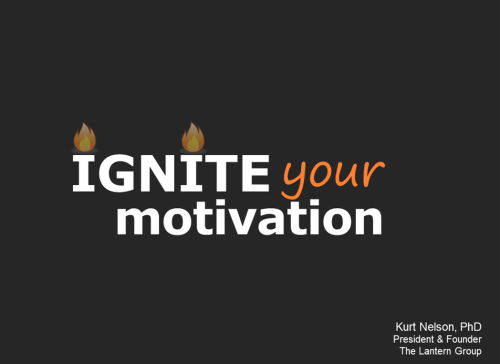Much of the work that I’ve done in the past has been on how the 4-Drive Model impacts employee motivation. The research that we did as well as the work that we implemented, focused mostly on large scale initiatives / programs that helped to satisfy these different drives (sales incentives, contests, recognition programs, award trips, performance management systems, etc..). Recently, I’ve been asked to develop some workshops, using the 4-Drive Model as the foundation, but that focus on helping managers better engage their employees – at a local level.
Putting these workshops together has been fascinating because it takes the 4-Drive Model to a much more specific place. Working one-on-one with an employee to help them feel more engaged at work. Even after 6 years of working with this model, I’ve identified a few new key pieces.
1. We all know that different people have different motivational profiles – but we’ve found that individuals motivational profiles can change very quickly (unlike someone’s personality profile – which changes little over time). Motivation, we found, is very context dependent. This is an important aspect when thinking about engagement.
2. Team environments within a larger organization are more important than any large scale initiative. Again, this is not ground breaking, but it does go to how team cultures are created or destroyed. One key piece that I’ve recognized, is that one bad-apple, can have an overly large negative effect on overall engagement of the team. In the past, I would have suggested working with that person to help develop them and coach them to improve – now I recommend that managers get rid of them as quickly as possible once they are recognized. It sounds harsh, but those individuals can poison the entire team to a point that makes it very hard to recover.
3. Most managers are too busy to focus on engagement. They have a hard enough time getting all of the work done that they are tasked to do – much less spend time thinking about how they can or should engage their employees. They often are so busy that they don’t stop to look around at what their employees are doing or saying. It is important to help them focus a portion of their energy on understanding what makes their team tick.
4. Most managers have not developed the skills and knowledge needed to effectively engage their employees. Some managers are naturally talented in this, like the sports phenom who at 18 possesses all skills necessary to be at the professional level. Most managers are on the JV team (if they even make the team). They need the coaching and time to develop their skills. Engagement is not hard, it just takes time and effort.
5. Probably the number one issue that managers have is that they don’t know what to focus on to increase engagement. Is it purely recognition, is it collaboration, is it tying to the larger purpose, is it compensation? This is where the 4-Drive Model really helps and can provide some guidance for managers and a way to understand their team.
Let me know your thoughts on this and any examples you’ve seen of good or poor management with regards to engagement.
Thank you!







